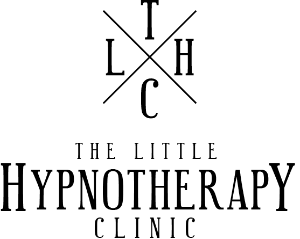The Effectiveness of Hypnotherapy
- By Fiona Shaw
- •
- 29 Apr, 2025
- •

Looking at the Evidence
When considering any therapeutic approach, it's natural to ask: "Does it actually work?" Hypnotherapy, while sometimes surrounded by misconceptions, has a growing body of research supporting its effectiveness for various conditions. Let's delve into what the evidence suggests.
Research Highlights on Hypnotherapy's Effectiveness:
While more research is always beneficial and is increasingly ongoing, numerous studies have explored the efficacy of hypnotherapy. Here are some key areas where research has shown promise:
- Pain Management: Hypnotherapy has been found effective in managing chronic pain conditions like fibromyalgia, irritable bowel syndrome (IBS), and even pain associated with medical procedures like childbirth and dental work. Studies have shown that hypnosis can alter the perception of pain and reduce reliance on medication.
- Anxiety and Stress Reduction: Research consistently demonstrates the positive impact of hypnotherapy on reducing anxiety disorders, including generalized anxiety, social anxiety, and phobias. It can help individuals access a calm state and reframe anxious thoughts.
- Irritable Bowel Syndrome (IBS): Several studies have highlighted the effectiveness of gut-directed hypnotherapy in alleviating symptoms of IBS, such as abdominal pain, bloating, and altered bowel habits leading to long-term symptom relief.
- Smoking Cessation: While results can vary, studies have shown that hypnotherapy can be a valuable tool in helping individuals quit smoking, particularly when combined with other support strategies.
- Sleep Disorders: Hypnotherapy has been explored as a treatment for insomnia, helping individuals to relax, reduce pre-sleep anxiety, and improve sleep quality.
- Post-Stroke Recovery Support: While research in this specific area might be ongoing, hypnotherapy can address common post-stroke challenges like anxiety, depression, and potentially aid in rehabilitation by promoting focus and motivation (linking back to the complementary nature discussed in a previous post).
What Makes Hypnotherapy Effective?
The effectiveness of hypnotherapy is thought to stem from its ability to help individuals access a focused state of awareness and heightened suggestibility. In this state, the subconscious mind becomes more receptive to positive suggestions aimed at changing thoughts, feelings, and behaviours.
Important Note:
It's crucial to remember that the effectiveness of hypnotherapy can depend on various factors, including the individual, the issues they face along with personal experiences and the skill of the hypnotherapist. It's always recommended to consult with a qualified and registered hypnotherapist and to discuss its suitability with your healthcare provider.
Conclusion:
The growing body of research provides tangible evidence for the effectiveness of hypnotherapy in various areas. While not a magic bullet, it offers a powerful and complementary approach to improving well-being and managing certain conditions. If you're considering hypnotherapy, exploring the research can provide valuable insights and confidence in its potential benefits.

Hopefully you’ve found it a really positive experience and are looking forward to the future smoke free.
For many though, this is the start of a sometimes lengthy process, with lots of ups and downs.
Maybe you just can’t get rid of that craving no matter how hard you try or maybe that’s no longer a problem but you find yourself wondering what to do with your hands now they’re not occupied with a cigarette? If you used smoking to help you relax or cope with stressful situations you might find yourself feeling more anxious than normal or just generally feeling less able to cope.
These learnt behaviours can be a real bugbear, especially when you’re trying so hard to do such a great thing for your health, so consider giving hypnotherapy a try. Many people think hypnotherapy just makes the act of smoking an unpleasant one but actually we can do so much more.
Using hypnosis we can make smoking something you don't enjoy but we can also stop those behaviours in their tracks so you no longer need them or rely on them. We can teach you techniques to handle difficult situations, keep you calm and use coping mechanisms that don't require cigarettes. Also, if you want to use other methods of support, like patches, at the same time then there's no reason why not.
It’s also never too late, so don’t be disheartened if Stoptober came and went without you. Ask yourself if you want to quit smoking and if you can answer an honest ‘yes’, then you can do it! If you’re not sure, then maybe now just isn’t the right time for you, so ask again in a month or two.
Sounds simple?
That’s because it can be, it’s worked for many people before so why not give it a try and see if it works for you?
From October 2019 we will have a quarterly newsletter, full of information, helpful tips and things we think you'd generally like to know.
The first issue will be out within the next few days but if there's anything you'd like to see included in a future issue, drop us a note via news@tlhclinic.co.uk
Read all about it * In line with regulation, our newsletter will only be sent out to people who have specifically opted to receive it, so if you haven't already requested a copy, just send an email to news@tlhclinic.co.uk with SUBSCRIBE as the subject and you will automatically be added to the database for future copies. *
We take your confidentiality very seriously and any email addresses supplied will be used for this purpose only and will not be shared externally with any 3rd parties.
It's a small action that can turn into something incredible.
Check out www.dkms.org.uk for all the details, you can register there and they'll send you a little swab kit you can do yourself at home.
Once you're done, give yourself a big pat on the back, you could be on the way to changing the life of someone who needs your help along with the lives of all their friends and family.
One small thing guaranteed to boost your mood!

A lot of people are curious about this and it’s a recurring question both in and out of the therapy room.
Regression, or looking back into your own past, is often used during hypnotherapy sessions as it helps us explore the route of a problem and create deep and lasting changes from this initial starting point. This is such a powerful and useful technique, I feel there would be a huge part of the hypnotherapy toolkit missing if we didn’t use it and for the majority of clients, the benefits are huge.
Sometimes it can be a daunting prospect if you’re anxious about something from your past, but this is discussed at length beforehand and we wouldn’t use any form of regression unless you were comfortable with it.
Now, that’s about this life and things that have happened in our current lifetime, so why would we be interested in a ‘past life’?
Well ... for exactly the same reasons.
Occasionally, a client can struggle to reach the initial cause of a problem or sometimes they can identify the root but it doesn’t appear to sit well along their current timeline. Wherever it’s found, we can deal with it in the same way and again the benefits can be enormous.
Of course, some clients are just curious and want to participate in a session specifically exploring a past life to find out who they were or might have been previously and for those people that's absolutely fine.
So, I suppose my point is ... why are we concerned if a past life is real or not?
It is and will continue to be a fascinating and widely debated topic but my own opinion is this ...
... Whatever your thoughts on past lives and past life regression are, if it helps some people, which it most definitely does, does it actually matter?




